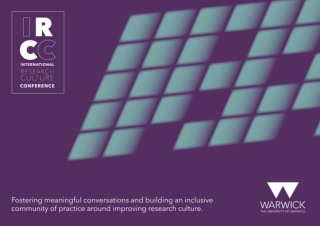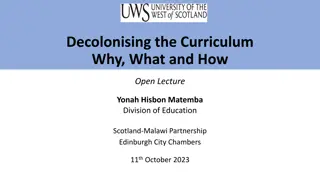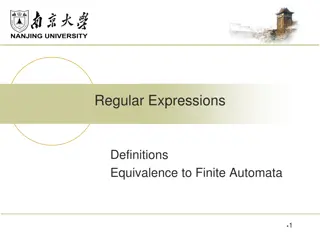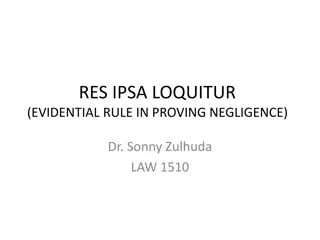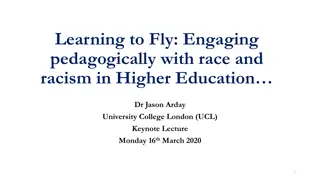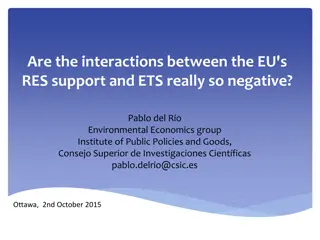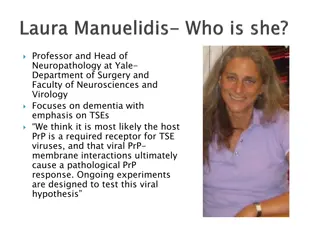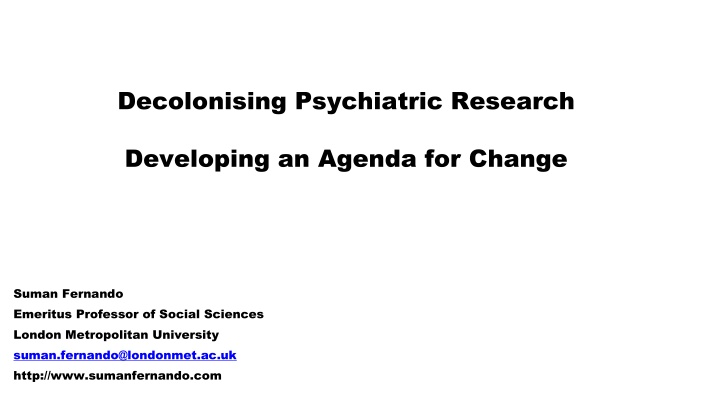
Decolonization of Psychiatric Research and its Impact on Mental Health paradigms
Explore the historical roots of psychiatric research, race-slavery, and colonialism, and their influence on mental health paradigms in European culture. Delve into the evolution of the scientific paradigm from European Enlightenment beliefs and the need for decolonizing psychiatric research for a more inclusive and equitable approach towards mental health.
Download Presentation

Please find below an Image/Link to download the presentation.
The content on the website is provided AS IS for your information and personal use only. It may not be sold, licensed, or shared on other websites without obtaining consent from the author. If you encounter any issues during the download, it is possible that the publisher has removed the file from their server.
You are allowed to download the files provided on this website for personal or commercial use, subject to the condition that they are used lawfully. All files are the property of their respective owners.
The content on the website is provided AS IS for your information and personal use only. It may not be sold, licensed, or shared on other websites without obtaining consent from the author.
E N D
Presentation Transcript
Decolonising Psychiatric Research Developing an Agenda for Change Suman Fernando Emeritus Professor of Social Sciences London Metropolitan University suman.fernando@londonmet.ac.uk http://www.sumanfernando.com
Race-slavery and race-colonisation 1. 1.The The Atlantic Slave Trade Atlantic Slave Trade mid-15C to early-19C set the ground for massive changes in the world. 2.Wealth from sugar and slavery Wealth from sugar and slavery backed by genocide led to total occupation by Europe of the new world , kick started the industrial revolution in Europe, and led to the colonisation of most of the world by European powers. 3. 3. Race and racism became the norm Race and racism became the norm embedded in Western culture. embedded in Western culture. 4. 4. Western culture spread all over the world and we all became partially westernised . Western culture spread all over the world and we all became partially westernised .
Mental Health, Psychiatry and Psychology in EUROPEAN CULTURE Madness became mental illness in the 15thC; and psychiatry / psychology (psy disciplines) were born in 17 - 18 C on the back of (European) Enlightenment thinking, where racist ideologies were rife*. Eurocentric diagnostic categories based on a Western view of the human condition were created by alienists / mad doctors imitating a scientific paradigm used for hard sciences. * *Eze, E. (1997) (ed.) Race and the Enlightenment. A Reader (Cambridge MA: Blackwell). *Morrison, T. (1993) Playing in the Dark. Whiteness and the Literary Imagination (London and Basingstoke: Pan Macmillan).
SCIENTIFIC PARADIGM Evolved from European Enlightenment BELIEFS BELIEFS POSITIVISM: POSITIVISM: OBJECTIVISM: OBJECTIVISM: RATIONALITY: RATIONALITY: Reality is rooted only in what can be observed Reality is rooted only in what can be observed Feelings, thoughts etc. regarded as objects Feelings, thoughts etc. regarded as objects Reason superior to emotion; All assertions are verifiable by Reason superior to emotion; All assertions are verifiable by logical proof logical proof Nothing occurs randomly; Natural causes for all events and Nothing occurs randomly; Natural causes for all events and effects effects Ideal of the independent self Ideal of the independent self CAUSALITY: CAUSALITY: INDIVIDUALITY INDIVIDUALITY APPROACHES APPROACHES Newtonian physics, purposeless machine Newtonian physics, purposeless machine Intellectual exercise Intellectual exercise Sum of the parts equals to whole Sum of the parts equals to whole MECHANISTIC: MECHANISTIC: LOGICAL REASONING: LOGICAL REASONING: REDUCTIONIST: REDUCTIONIST: Derived from Hamilton, P. (1996) The Enlightenment and the Birth of Social Science in S. Hall et al (eds) Modernity. An Introduction to Modern Societies. Oxford & Victoria, Australia : Blackwell, pp. 1-54 Adapted from: Fernando. S. (2010) Mental Health, Race and Culture third edition. Basingstoke: Palgrave-Macmillan, p. 54.
Basis of current European psychiatry and Basis of current European psychiatry and clinical psychology developed in the late clinical psychology developed in the late 19 19th th 20 20th thCenturies lasting to the present. Centuries lasting to the present.
The psy disciplines ignored all non-European knowledge for example the paradigms (for study of mind ) informing mental health systems in the m rist ns of Arabic Empire (10-14thC) that were active in North Africa and Al-Andalus (Iberian peninsula), Tibetan psychiatry , and many systems of healing and (ethno-)psychiatries we now know were thriving in Africa, Asia and pre-Columbian America, since long before the West European systems.
Mental illness in Islamic Medicine 10 13 Centuries (m rist ns) Concept of mental illness Blending of humoral & biological concepts (via Bedouin folk medicine, Islamic teaching and Hippocratic-Galenic concepts (Dols, 1992) union of science and religion (Graham, 1967, p.47); medical + spiritual (music, art, and Islamic teaching) (Foucault, 2006) Also, reports of restraint, beatings and use of herbs and medicaments. M rist ns (mental hospitals) in Bagdad, Basra, Cairo, Aleppo, Granada, etc. (They deteriorated and became places for containment by end 14th C )
Ethno-psychiatry in Tibetan Medicine around 12-13 Century ...complex interweaving of religion, mysticism, [Mahayana Buddhist] psychology and rational [Ayurvedic] medicine. The psychology involved with insanity [ psychosis ?] is the same as that required for pursuing enlightenment: ..it all depends on whether it is accepted or not ... Clifford, T. (1984) Tibetan Buddhist Medicine and Psychiatry: The Diamond Healing York Beach, Main, USA: Samuel Weiser, p.7.
References for previous slide Bojuwoye, O. (2005). Traditional healing practices in Southern Africa: Ancestral spirits, ritual ceremonies, and holistic healing. In R. Moodley & W. West (Eds.), Integrating Traditional Healing Practices into Counseling and Psychotherapy. Thousand Oaks, CA: Sage. Clifford, T. (1984) Tibetan Buddhist Medicine and Psychiatry: The Diamond Healing (York Beach, Main, USA: Samuel Weiser). Dols, M. W. Insanity and its treatment in Islamic Society, Medical History 31: 1-14. Dols, M. W. (1992) Majn n: The Madman in Medieval Islamic Society, D. E. Immisch (ed.) (Oxford: Clarendon Press). Fernando, S. (2014) Mental Health Worldwide. Culture, Globalization and Development. (Basingstoke, Hampshire, UK and New York: Palgrave Macmillan). Foucault, M. (2006) History of Madness, ed. Jean Khalfa, tr. J. Murphy & J. Khalfa. London & New York: Routledge. Frager, R. (1999) Heart, Self, & Soul. The Sufu Psychology of Growth, Balance, and Harmony. Wheaton, Illinois and Chennai, India: Quest Books Theosophical Publishing House. Gaines, A. D. (1982) Cultural Definitions, Behaviour and the Person in American Psychiatry , in A. J. Marsella and G. M. White (eds) Cultural Conceptions of Mental Health and Therapy (Dordrecht: Reidel), pp. 167 92. Graham, T. F. (1967) Medieval Minds Mental Health in the Middle Ages (London: Allen & Unwin). Henry, E., and Pene, H. (2001) Kaupapa M ori: Locating indigenous ontology, epistemology and methodology in the Academy. Organisation: Speaking Out, 8(2), 234-424. DOI: 10. 117/1350508401082009 Hwang, K. K. (2012). Foundations of Chinese Psychology: Confucian Social Relations. New York: Springer. Kakar, S. (1984) Shamans, Mystics and Doctors. A Psychological Inquiry into India and its Healing Tradition (London: Unwin Paperbacks) Karenga, M. (1995). Black psychology, in K. P. Monteiro (ed.), Ethnicity and psychology: African-, Asian-, Latino- and Native-American psychologies pp. 21-39. Dubuque, IA: Kendall / Hunt. Rama, Swami (1985) Perennial Psychology of the Bhagavad Gita (Pennsylvania, Honesdale: Himalayan International)
WHAT WE NOW NEED Decolonisation (with antiracism) Decolonisation (with antiracism) Dismantling of the Master s House & Universalising the Knowledge Base Dismantling of the Master s House & Universalising the Knowledge Base drawing on ethno drawing on ethno- -psychiatries psychiatries & global psychologies. & global psychologies. Lorde, Audre (2017) The Master s Tools Will Never Dismantle the Master s House in A. Lorde Your Silence Will Not Protect You. London: Silver Press Gaines, Atwood D. (ed.) (2018) Ethnopsychiatry. The Cultural Construction of Professional and Folk Psychiatries. Albany, NY: State University of New York Press. Fernando, S. & Moodley, R. (2018) Global Psychologies. Mental Health in the Global South London: Palgrave Macmillan
Some comments on psychiatric research in recent times
Research into cultural / racial issues by Research into cultural / racial issues by psychiatrists / epidemiologists in the UK during the psychiatrists / epidemiologists in the UK during the past thirty years has been largely a matter of past thirty years has been largely a matter of studying studying single samples single samples of people from ethnic of people from ethnic groups and / or comparing groups and / or comparing matched samples people from different ethnic groups resident in a people from different ethnic groups resident in a particular location using the particular location using the census definition of ethnicity ethnicity created for monitoring purposes and created for monitoring purposes and lacks objectivity for research; lacks objectivity for research; and measuring rates of diagnosis (which of diagnosis (which often lack objectivity or cross often lack objectivity or cross- - cultural relevance cultural relevance) using DSM or ICD classification. ) using DSM or ICD classification. matched samples of of census definition of and measuring rates
Whats wrong with epidemiological research? Instead of studies that progress from descriptive to analytic to experimental epidemiology and then to studies of effectiven Instead of studies that progress from descriptive to analytic to experimental epidemiology and then to studies of effectiveness leading to prevention , British epidemiological psychiatric research into ethnic issues resembles circular epidemiology ( leading to prevention , British epidemiological psychiatric research into ethnic issues resembles circular epidemiology (Kuller 1999, p.897), which is the continuation of a particular line of research after something has been established beyond reasona 1999, p.897), which is the continuation of a particular line of research after something has been established beyond reasonable doubt (see under Manipulation of Research Findings in Fernando, 2017, pp 100 doubt (see under Manipulation of Research Findings in Fernando, 2017, pp 100- -101) ess Kuller, , ble 101) Kuller, L. H. (1999) Invited commentary: Circular epidemiology. American Journal of Epidemiology 150(9): 897-903. Fernando, S. (2017) Institutional Racism in Psychiatry and Clinical Psychology. Race Matters in Mental Health. London & New York: Palgrave Macmillan. researchers are unwilling or unable to question their methodology or test out hypotheses that may question dogmatically held ideologies for example, the notion that research is inherently race-free and culture-free and reluctant to admit that the primary explanation for racial inequality lies in institutional racism. Researchers need to move away from coloniality (colonial thinking) plus Researchers need to move away from coloniality (colonial thinking) plus institutional racism. institutional racism.
Some ways of being racist in psy research (using published information*) 1.Selection of samples: - conflating culture & race (both contribute to ethnicity ) & failure to address racism in background & diagnosis (pps.7, 45, 49, 50,84, 98, 100). eg, East End study (p.2); Aesop study (p. 162-3); Collusion in securitisation re Islamophobia (pp.169-172) 2. Biased understanding of concepts (p. 98-100; 163-167) 3.Manipulation of results: Black people being misused (p. 101) token blacks? 4. Biased approval of projects (p.101-3) 5. Disregarding experience of victims of racism in psychiatry: If it feels like racism note McPherson racial event model *Ref: Fernando, S. (2017) Institutional racism in psychiatry and clinical psychology. Race Matters in Mental Health. London & New York: Palgrave Macmillan.
Current approach to research using Eurocentric medical diagnoses, many or all of Current approach to research using Eurocentric medical diagnoses, many or all of which have no scientific (objective) validity; and ignoring the cultural diversity of which have no scientific (objective) validity; and ignoring the cultural diversity of what mental and illness mean, results in unwarranted assumptions of white what mental and illness mean, results in unwarranted assumptions of white supremacy in knowledge production being made supremacy in knowledge production being made .and may well lead to racist action being taken, .and may well lead to racist action being taken, for example .. for example ..
MRC Aesop study (Fearon et al. 2006) Age-standardized rates of diagnosis per 100,000 per year among all referrals aged 16-64 with first psychotic symptoms South-East London, Nottingham and Bristol (1997-9) Ethnicity All Psychosis Narrow schizophrenia White British 20.2 7.2 African Caribbean 140.8 70.7 Black African 80.6 40.3
Conclusions of Aesop study Conclusions of Aesop study on ethnic differences in rates of diagnosis on ethnic differences in rates of diagnosis Its not their genes Its not their genes Its not our diagnoses Its not our diagnoses Its their cultures Its their cultures Action proposed Action proposed Social engineering project (changing their family life) planned by Mental Health Tsar 2010 but after public protest (in The Guardian Lewin, (2009) it has not been implemented yet. But a project has been funded by the the National Institute for Health Research (NIHR) for what sounds like something very similar if not identical (Edge et al. 2018).
References for Fearon et al (2006), Lewin (2009) & Edge et al (2018) Fearon, P., Kirkbride, J. B., Morgan, C., Dazzan, P., Morgan, K., Lloyd, T., Hutchinson, G., Tarrant, J., Fung, W. A., Holloway, J., Mallett, R., Harrison, G., Leff, J., Jones, P. B., and Murray, R. M. (2006) Incidence of schizophrenia and other psychosis in ethnic minority groups: results from the MRC AESOP Study , Psychological Medicine, 26: 1541 - 50. Lewin, M. (2009) Schizophrenia epidemic among African Caribbeans spurs prevention policy change , The Guardian, 09 March 2009 at: https://www.theguardian.com/society/2009/dec/09/african-caribbean-schizophrenia-policy. Accessed 06 December 2011. Edge D, Degnan A, Cotterill S, Berry K, Baker J, Drake R & Abel K. (2018) Culturally adapted Family Intervention (CaFI) for African- Caribbean people diagnosed with schizophrenia and their families: a mixed-methods feasibility study of development, implementation and acceptability. Health Serv Deliv Res 2018;6(32)
1. Antiracism is not about being against all things Western. 2. Decolonising is not about throwing out all knowledge & systems of mental health developed in the West. Antiracism and decolonisation are projects Antiracism and decolonisation are projects that involve adding and subtracting but that involve adding and subtracting but above all above all REFORMING. REFORMING.
Approaches sometimes seen as decolonisation / antiracist incorrectly Being culturally sensitive is the same as being antiracist . BUT this is sometimes racist if cultural assumption is wrong. Decolonisation is the same as being antipsychiatry / antipsychology . Not necessarily but systems we can call psychiatry (ethno- psychiatries) have been developed universally and people everywhere are informed by their own indigenous psychologies. Medicalising distress is Western, so abolishing psychiatric diagnoses is to decolonise . Medicalising problems as illness happens in many cultures.
Researching decolonisation 1. Analysing colonial thinking and ideologies that resulted in Eurocentrism of psychiatric / psychological knowledge base; and structures of power that result in inequalities in the mental health system. (Defining decolonisation is a research question.) 2. Develop methodologies for decolonisng the mental health system(s) today, especially the practice of the psy disciplines. (Developing research methodologies is a research question.)
Coloniality [colonial thinking] of Power & Eurocentrism * Coloniality [colonial thinking] of Power & Eurocentrism * The hegemony and structures of The hegemony and structures of power that have emerged during the power that have emerged during the era of colonialism, which stretches from the conquest of the era of colonialism, which stretches from the conquest of the Americas (early 1500s) to the Americas (early 1500s) to the 1950s 1950s the era of racism and colonisation, European domination, Westernisation of the world colonisation, European domination, Westernisation of the world later continued via soft power as neo later continued via soft power as neo- -colonialism. the era of racism and colonialism. *Quijano, Anibal (2000) Coloniality of Power and Eurocentrism in Latin America. International Sociology, 15(2): 215-232. doi:10.1177/0268580900015002005 (Quijano is pronounced kijernu )
Some references for coloniality and power (white superiority) and the (European) psy disciplines informing mental health systems Cesaire, Aime (2000) Discourse on Colonialism. New York: Monthly Review Press. Fanon, F. (1967) The Problem of the Colonized, in F. Fanon (1967) Toward the African Revolution (political essays) trans, H. Chevalier New York: Grove Press, pp. 1-44. Freire, Paulo (1972) The Pedagogy of the Oppressed, trans. B. J. Ramos. London: Sheed & Ward. Memmi, A. (2016) The Colonizer and the Colonized. Translated by H. Greenfield, foreword by J-P Sartre. London: Souvenir Press. MANY MORE TO BE ADDED!
Agendas for researchers & funders of research Ensure diversity Ensure diversity of of researchers researchers (beware of (beware of tokenism) tokenism) in all psychiatric & clinical psychological in all psychiatric & clinical psychological research AND apply special criteria in some types research AND apply special criteria in some types of research. of research.
Types of research that funders review by applying antiracism & decolonisation criteria Into race , racism, culture, decolonisation and antiracism Where differences between ethnic / cultural groups are being compared / researched directly Where matters like social stress, intergenerational trauma and post-traumatic disorders are being looked at. Others to be added
There is a different range of criteria to be applied in international studies
CROSS CROSS- -CULTURAL / INTERNATIONAL RESEARCH CULTURAL / INTERNATIONAL RESEARCH HOW TO MEASURE? HOW TO MEASURE? CATEGORY FALLACY (Kleinman, 1977) CATEGORY FALLACY (Kleinman, 1977) This is because the meaning of mental health and mental illness / disorder is culture This is because the meaning of mental health and mental illness / disorder is culture- -specific so one cannot be sure about identifying the same thing but: sure about identifying the same thing but: specific so one cannot be There is overlap due to similarities in / sharing of culture There is overlap due to similarities in / sharing of culture Imperialism has resulted in imposition of psychiatric system to varying extent Imperialism has resulted in imposition of psychiatric system to varying extent Globalisation in context of power and influence continues to dominate cultural change Globalisation in context of power and influence continues to dominate cultural change OBSERVER BIAS OBSERVER BIAS COMMUNICATION PROBLEMS COMMUNICATION PROBLEMS VARYING HELP VARYING HELP- -SEEKING PRACTICES AND ILLNESS BEHAVIOUR SEEKING PRACTICES AND ILLNESS BEHAVIOUR VARIATIONS IN SERVICE PROVISION AND WHAT IS ACCESSED VARIATIONS IN SERVICE PROVISION AND WHAT IS ACCESSED
Decolonised anti-racist approach to funding applications Look at details through an antiracist lens after full study of racism and coloniality (colonial thinking / quality of being colonial) Have the researchers got a handle on racism & coloniality? Do the researchers understand modern use of terms culture and race ? Question whether institutional racism is taken on board have researchers estimated racism affecting cohorts? Examine how matching is done Is census definition of ethnicity appropriate? Is cultural background differentiated from race ? Does the ethnic diversity in group of researchers allow for power considerations between them Are researchers qualified to analyse results from a antiracist perspective? (others to be added)
Analysing results to devise conclusions Analysing results to devise conclusions 1.Take on board experience of the victimised / oppressed people personally does experience of psychiatry feel like slavery 2. Carry out social-historical exploration / analyses keeping in mind the need to: Dismantle the Master s House Dismantle the Master s House Universalise the knowledge base Universalise the knowledge base Take an antiracist approach Take an antiracist approach Explore narratives including back-stories of what really happens when research is done, diagnoses made, or treatment prescribed
Decolonised research that could be Decolonised research that could be promoted by funders promoted by funders Research into Research into alternative alternative s to (what we think of as) psychiatry and psychology ) s to (what we think of as) psychiatry and psychology ) and / or and / or pluralistic systems of mental health pluralistic systems of mental health , , ncluding ncluding those being suppressed by those being suppressed by neo neo- -colonial approaches of colonial approaches of globalisation globalisation ( (Westernisation Westernisation). ). Research the global scene where indigenous local systems are being forced out by Research the global scene where indigenous local systems are being forced out by neoliberal political policies and the power of big pharma. neoliberal political policies and the power of big pharma. Probably many others. Probably many others.
END END Thank you for listening Thank you for listening Comments welcome ! Comments welcome ! suman.fernando@londonmet.ac.uk suman.fernando@londonmet.ac.uk hmrac@btinternet.com hmrac@btinternet.com


